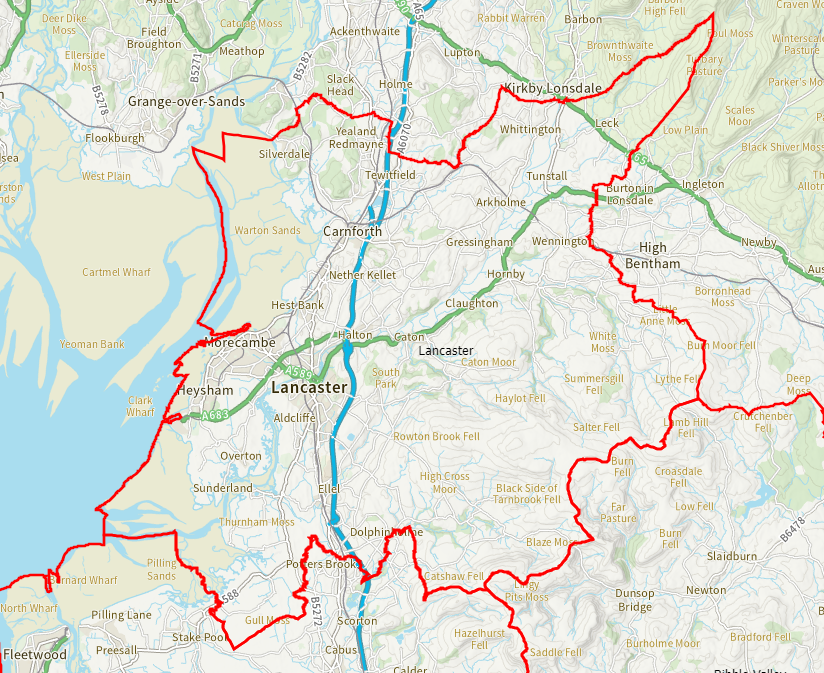Pots of Possibility
Funding for projects that generate positive outcomes for people and the environment by reducing waste and building community resilience.
Closing Loops is a five-year £1.5 million project led by FoodFutures, North Lancashire’s sustainable food partnership.
The scheme is delivered by six local organisations (LESS, Lancaster District CVS, Eggcup, Global Link, Shared Future CIC and Scientists For Global Responsibility), and is funded by The National Lottery Community Fund.
Thanks to National Lottery players, it is supporting community-led action and local initiatives to transform waste into a valuable resource, aiming to stimulate a zero-waste, circular and regenerative local economy.
As part of this, £300,000 in small grants will be available through the Pots of Possibility fund to enable charitable organisations, social enterprises, community groups and others in north Lancashire to develop creative ideas to help communities and the environment to flourish.


We're looking for project ideas that fit into any of the Closing Loops project themes
- Reusing, repurposing and repairing materials currently going to waste (e.g. textiles, electronics, packaging, surplus food, etc)
- Sharing resources (e.g. tools, materials, skills, etc) or repurposing unused space for community benefit
- Inspiring people to use and buy things more sustainably and to produce less waste
- Growing, cooking and eating food that’s local, seasonal and sustainably produced
Access up to £5,000 from Community Pots, or up to £10,000 from Your Pots
- Community Pots: up to £5,000 to support pilot projects, test the feasibility of new ideas and support community projects. Round 3 opens in spring 2025.
- Your Pots: £5,000 to £10,000 to grow ideas and scale up pilots that contribute to a local ecosystem of regenerative initiatives and enterprises, awarded through a participatory budgeting process. Round 2 opens in summer 2024.
Pots of Possibility Q&A
Voluntary, community, faith and social enterprise organisations are all eligible to apply. Projects must take place in the Lancaster district (anywhere on this map). Your organisation must be at least one of the below:
- Unregistered voluntary or community organisation
- Constituted group or sports club
- Registered charity
- Charitable incorporated organisation
- Not-for-profit company
- Community interest company
- School, College or University (as long as the project provides wider community benefits)
- Faith-based group
Organisations can only submit one application per round. If you applied previously but were unsuccessful, you are welcome to apply again for the same project or with a new idea.
If your organisation has had a Pots of Possibility grant in a previous round you are also able to apply again, however you must have completed your project and your End of Grant Return before submitting a new application.
Return to this page when rounds are open to download the full guidance and find out more.
Apply through our online platform by registering an account at morecambebay.grantplatform.com
This secure service allows you to work on your application, saving and returning to it as many times as you like before submitting. It is also where we will record information we create regarding your application and anything else you send us while you are delivering your project.
While rounds are open for applications, you can return to this page to download a reference copy of the application form to use away from your device.
Community Pots
Round 3 opens for applications in spring 2025.
Your Pots
Round 2 will open in Summer 2024.
Organisations can only submit one application per round. If you applied previously but were unsuccessful, you are welcome to apply again for the same project or with a new idea.
If your organisation has had a Pots of Possibility grant in a previous round you are also able to apply again, however you must have completed your project and your End of Grant Return before submitting a new application.
Return to this page when rounds are open to download the full guidance and find out more.
Grants can be spent on projects taking place in the Lancaster district, defined as the area covered by Lancaster City Council shown on the map below.
The project must also fit into the Closing Loops project themes listed above. There’s more information about them in the guidance documents.
We can fund a wide range of activities within your project, including:
- Putting on events or taking part in other people’s events
- Publishing content like websites, videos, podcasts or books
- Providing training or education
- Reusing or repurposing equipment or resources (we recommend avoiding using funds to buy new equipment unless it has not been possible to source second-hand or shared community resources)
- Improving land or buildings
- Paying staff or consultants
- Working with volunteers and paying their expenses
There are also some things we can’t fund. Return to this page when rounds are open to download the full guidance and find out more.
In the application form, you will answer a few eligibility questions and then tell us about your project, including the budget.
You don’t have to use all the words available or be completely certain about costs.
You will also need to tell us some information about your organisation, and provide the name and contact details of two people we can discuss the application with.
We will also ask you to upload some documents, such as a bank statement, accounts, your organisation’s articles of association or rules, and information about policies, insurance and your premises. It is not compulsory to provide any of these at the application stage, but we’ll need to see them before we can issue a grant agreement, so providing them when you complete the application form speeds up the process.
Return to this page when rounds are open to download the full guidance and find out more.
Contact LDCVS by email at [email protected] or by telephone on 01524 555900 for support on questions about the online application process, eligibility, documentation, and timescales. We also provide advice to grant holders about their grant agreement, payments, and the monitoring and evaluation process.
Contact Jo Stocking, Closing Loops REconomy Coordinator, by email at [email protected] to get advice about Closing Loops themes, discuss project ideas, and find out more about the fund’s approach to zero-waste and regenerative enterprises.
If you have questions about ‘participatory budgeting’ generally, you can contact Jez Hall, of Shared Future CIC, who is advising on how this process will run. Jez has supported many similar PB initiatives over many years. Contact Jez at [email protected]
Applications to Community Pots for grants up to £5,000 are reviewed by a funding panel who will confirm the applicant’s eligibility and assess the project against the Community Pot criteria. The panel, which operates using a method designed to create consensus among the members, makes recommendations to LDCVS about which projects should be funded.
Applications to Your Pots for grants up to £10,000 are reviewed to confirm eligibility. We’ll work with applicants to resolve any questions that arise. Eligible applicants are then invited to take part in a community voting event which will use a participatory budgeting process to make recommendations to LDCVS about which projects should be funded.
‘Your Pots’ uses an innovative ‘participatory budgeting’ approach where everyone who lives, works or plays in Lancaster District can, if they choose, be involved in deciding who receives funding. This process is sometimes called participatory budgeting, or sometimes it is called participatory grant making.
It has been used extensively across the UK to give out grants like these.
If you would like to find out more about the participatory approach used for ‘Your Pots’ you can watch a 25-minute online presentation about ‘participatory budgeting’ on the Shared Futures YouTube channel. The first 14 minutes is a general explanation of participatory budgeting and the last 10 minutes more specifically about the process we are piloting in Lancaster District.
You can also find out more about this democratic model of grant making in the Summer 2023 issue of Thrive, North Lancashire’s community food magazine. The article, You could be a community dragon too!, is on pages 38 and 39. You can pick the magazine up in paper form from a number of locations (full list here), or read the article on the FoodFutures website.
The Closing Loops project aims to create a regenerative economy in North Lancashire. A regenerative economy is a network of local people, organisations and businesses who live and work in a way that protects and restores the environment, builds healthier communities and improves people’s wellbeing.
A regenerative economy is made up of different regenerative enterprises. These could be community initiatives or groups, charities, social entrepreneurs and other types of not-for-profit business.
Some examples might include:
- A market garden that grows and distributes seasonal, organic veg locally and trains new growers who want to produce local food
- A village stall for swapping surplus veg, plants and seeds
- A community enterprise that makes use of a material currently going to waste (food, textiles, plastic, etc)
- Workshops to learn about refurbishing, fixing and repairing
- Using an empty building for a pop-up repair café
These ideas are explored in the Spring 2023 edition of THRIVE. For inspiration, have a look at some of the ideas shared by local residents at the Closing Loops World Cafes.



